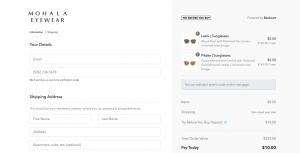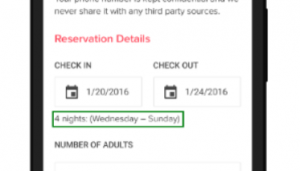
Most small businesses have to fight for their share of the market, especially when it comes to web searches. Keyword rankings may fluctuate on a daily basis, leaving your business listing well below your competitors. Google AdWords is a pay-per-click advertising service that will help bring your listing to the top of relevant search results. Whether you decide to try out AdWords on your own or use the help of a digital marketing agency, here are five things to keep in mind:
Establish Your PPC Objectives
Businesses with specialised services may use any number of particular keywords to attract their niche clientele. Pay-per-click (PPC) advertising allows you to “bid” on key search phrases and the companies with the winning bids are listed first.
This means that your search engine rankings may not change if you only bid on the most popular keywords. Before choosing keywords and embarking on a PPC campaign though it is important to outline your objectives. The type of business you run will affect the goals your campaign needs. Here are several possible objectives:
- Leads
- Sales
- Email sign-ups
- Account registrations
- Appointments booked
Determining your goal now will direct the rest of the campaign, including which keywords you choose.
Expect Trial and Error
Pay-per-click advertising has a steep learning curve, so your first campaign may not be profitable. However, the platform is conducive to testing and learning as you go. You can also seek expert guidance from a professional digital marketing agency to help maximise the chances of success.
If working with an agency, you may be able to set the minimum amount of time that you will leave a campaign as-is, to see how it works. The budget for this period should be established from the outset.
Make Sure Leads Will Not Get Lost
Picture this: a web searcher follows your PPC link and winds up on your website. Once there, however, how will you convert your prospective searcher into a lead? One popular way to catch leads is by asking visitors to complete an online form. They could sign up for an email newsletter, for example, or ask a question to your staff. The form should be easy to use and only ask for minimal, essential information. Test it several times to ensure that it does not throw back unresolvable errors.
Next, make sure the data collected is being sent somewhere you can find it again. Some site design platforms forward information to a company email address, while others may collect and store data for you to view. Finally, make sure that someone on your staff is held responsible to follow up on these leads.
There are many more routes to conversion, including phone calls and in-person visits. Part of making sure that leads are not lost is updating your website and educating your staff. A streamlined internal process can help you avoid losing potential clients.
Consider the Budget
What can your business afford to pay per click? The maximum bid is the highest limit your business is willing to pay for a web searcher’s click for a given keyword. You can calculate this amount based on many factors, including:
- The results of your keyword research and chosen search terms’ popularity.
- The percentage of your budget you spend on marketing.
- The “average spend” per client or web transaction. If your base consists of mainly repeat clients, consider using an average annual spend rate.
- The conversion rate each campaign produces. For product sales, this is calculated by dividing the number of site visits by the visits that resulted in a sale. The same formula holds for other types of conversions.
You may not have much of the above data when beginning a new campaign. If so, prepare figures based on reasonable assumptions. Once you begin to receive real data from the new campaign, you can adjust your bids as needed.
Set Limits by Postcode
One of the best tips for small businesses using Google AdWords is to set limits and then expand. Google offers Enhanced Campaigns that allow users to target consumers in particular postcodes. If your business caters to a small area, there is no need to waste money seeking consumers who do not live nearby.
Since your company is paying per click, you want each click to be a potential client who could provide a return on your investment. Focus your initial resources on the immediate area, and expand your region as desired. Before expanding beyond the immediate postcodes, however, make sure your practice can handle an influx of phone calls and new consultations.
Digital & Social Articles on Business 2 Community(25)








